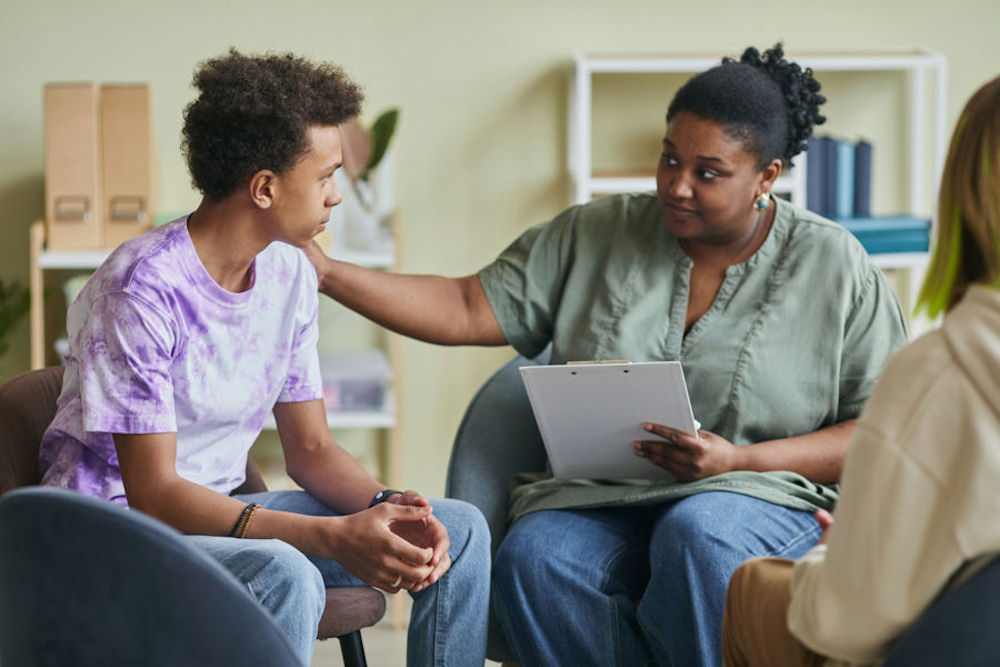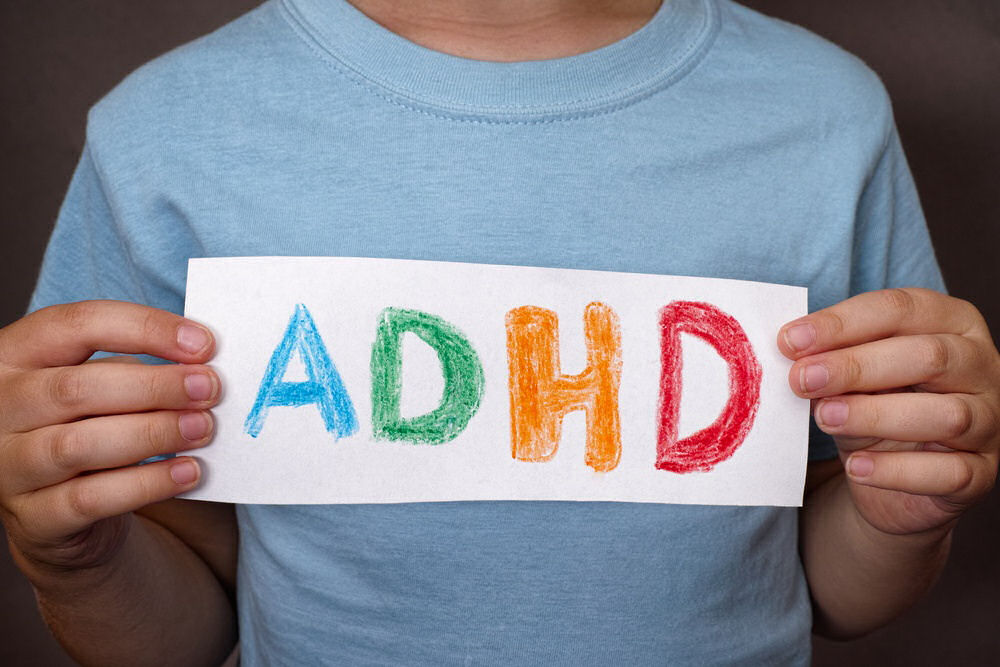
ADHD (attention-deficit hyperactivity disorder) is more common than previously believed—up to 65% of patients with childhood ADHD have problems that continue into adulthood. Due to issues with being distracted and lack of concentration, many teens with ADHD have difficulties (such as failing grades) in school. It’s common for teens with ADHD to lose textbooks, forget assignments, and be bored with the daily classwork. However, they may also:
It doesn’t have to be that way, though. Treatment is available at Blume Behavioral Health in Redondo Beach, CA. Blume has experienced professionals who specialize in treating adolescents. Furthermore, we have gender-specific housing, which lessens the distractions that would occur in a mixed-gender group.
Before an individualized treatment program is designed, Blume Behavioral Health will conduct a thorough evaluation before treatments are recommended. After the diagnosis is made, Blume offers evidence-based practices such as:

There are a lot of opinions about treating ADHD in teens. Some believe that behavior therapy alone will work for teens. However, according to the National Institute of Mental Health (NIMH), approximately 80% of teens who needed medication for ADHD in childhood still need medication during their teen years.
Typically, a combination of behavior therapy and medication is the best approach to treating adolescents with ADHD. The American Academy of Pediatrics, the American Medical Association, and the American Academy of Child and Adolescent Psychiatry all endorse behavior therapy to improve ADHD behavior issues.
The most commonly prescribed medications are stimulants. These drugs may make teens more alert and improve their ability to do better in school. Stimulants that may be prescribed include:
Non-stimulant medications are also used to treat ADHD in teens. Non-stimulant medications have different side effects than stimulants. They don’t usually lead to anxiety, irritability, and insomnia as the stimulants might. They are also not habit-forming and have a lower risk of being abused. This makes them more appropriate for teens with ADHD who also have drug or alcohol abuse problems. There are risks associated with Adderall use.
There are alternative treatments that are sometimes used along with prescribed medications. These treatments include:
Attention-deficit/hyperactivity disorder is a common neurodevelopment disorder. Children with ADHD may be overactive and have problems with impulsive behaviors. They also have difficulty paying attention, following instructions, and completing tasks.
When these symptoms happen during childhood, they often continue into adulthood. One research study found that ADHD symptoms continue into adulthood in 90% of cases. And some adults with ADHD have never been diagnosed.
While the exact cause of ADHD is unknown, there are environmental factors that have been identified as possible causes including:
ADHD in teens has similar symptoms to ADHD in children. These symptoms must have been present before age 12 and interfere with their daily life to be diagnosed. These symptoms may worsen during the teen years because of hormonal changes and the increased demands of school and extracurricular activities. Symptoms of ADHD include:
Driving presents special risks for teens with ADHD. Adolescents with ADHD are 2 to 4 times more likely to experience a car accident than those without ADHD. Because teens with ADHD are likely to be:
All of these traits make traffic accidents and serious injuries more likely. However, studies show that teen drivers with ADHD are less likely to have accidents if they take their medication.
Teens with ADHD were twice as likely to have abused alcohol within the past 6 months and three times as likely to abuse drugs (other than marijuana). Getting the right ADHD treatment for teens lowers the risk of alcohol and drug abuse later in life.
Not all kids with ADHD have problems getting along with others. But if your child does, you can help them improve their relationships and social skills. The sooner the problems with peers are addressed, the more successful these steps can be. It helps for parents to:
 Different ADHD medications work in different ways. Still, all ADHD medications work by increasing the levels of neurotransmitters. These important brain chemicals include dopamine and norepinephrine. By increasing the levels of these neurotransmitters, ADHD symptoms can be improved including:
Different ADHD medications work in different ways. Still, all ADHD medications work by increasing the levels of neurotransmitters. These important brain chemicals include dopamine and norepinephrine. By increasing the levels of these neurotransmitters, ADHD symptoms can be improved including:At first, the therapist will ask questions and listen to find out how ADHD affects them. Then, they will set goals for what the teen wants to improve. In sessions, the teen and therapist will:
Therapists encourage teens to talk about their feelings to help them recognize feelings and express them in words instead of actions. Talking and listening promotes understanding, openness to learning, paying attention, and listening better.
The therapists might use worksheets and activities that teach lessons about emotions, schoolwork organization, studying, and understanding others.
The therapist might teach skills like breathing skills and mindfulness. Practicing these skills can train attention and calm the mind.
Therapists will inquire about ADHD problems at home and school. They will discuss the best ways to solve the problems.
Helping your child with many aspects of their life is something you’re used to. You may help them with money management and coping with difficult social situations. And just because they’re becoming adults doesn’t mean you should stop being supportive and loving. One way to help them step into adulthood is to encourage them to ask others for help.
Blume Behavioral Health is the help your child needs. All you have to do is ask for it. Our therapists and life coaches, who specialize in ADHD treatment for teens, can help your child develop study skills and help them find positive ways to communicate when dealing with conflicts.
Although there is no gender-specific treatment for ADHD, treatment recommendations may vary by age, stage of life, and the intensity of the symptoms. Studies have found differences in the usage, prescription, and effectiveness of ADHD medications for females and males. In addition, there is research that shows the interrelationship between fluctuating sex hormones and ADHD symptoms.
That’s why Blume Behavioral Health offers age and gender-specific treatment for your teen. Adolescents are better able to express feelings around other teens and relate to them on another level. Similarly, boys and girls are more comfortable in a single-gender group. A gender-specific approach to mental health treatment allows each person to receive more personalized treatment to support their recovery.
If you aren’t sure about your teenager’s symptoms, or even if you think you are, contact us at Blume Behavioral Health today. Ignoring symptoms won’t make them go away. This is your chance to make a real difference in your child’s life today and in the future.
Dr. Aneta Lotakov Prince is a board-certified psychiatrist with over 20 years of clinical experience treating adolescents and adults facing severe mental illness, co-occurring substance use disorders, and complex emotional and behavioral health challenges. Certified by the American Board of Psychiatry and Neurology, she holds an active DEA registration and California medical license. Dr. Prince’s patient-centered approach is rooted in compassion and driven by a dedication to improving quality of life and supporting long-term recovery. She remains deeply committed to empowering each individual she works with to build a life of purpose, connection, and resilience.